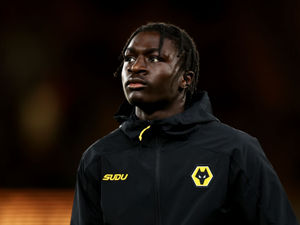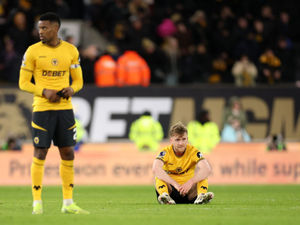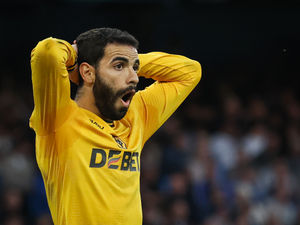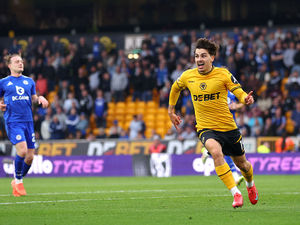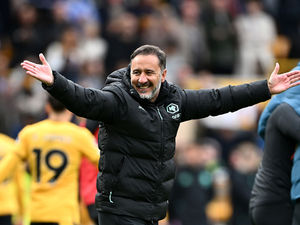Inspirational former Wolves winger Dave Thomas on his battles both on and off the pitch
Dave Thomas used to fly down the wing for both Wolves and Everton, and also, to huge success at the start of his career, with Burnley and QPR. In more recent years, the eight-capped England international has faced and adapted to a challenge far bigger than any he ever faced in his playing days. He spoke to Paul Berry.
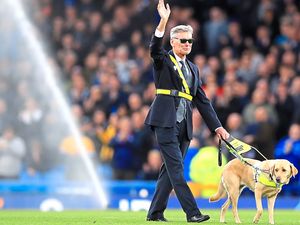
The challenges that Dave Thomas has encountered in his later life – being registered blind and left with only minimal central vision – have certainly left him with an evener keen sense of perspective about what’s important.
And the fundraising he has led as a response has been nothing short of inspirational.
But even safe in the knowledge that his football career was not the be all and end all - as impressive as it was - he still pulls no punches about what happened when he decided to move to Molineux back in 1979.
“Coming to Wolves was the worst decision I ever made,” reveals the now 73-year-old.
“It was an absolute disaster and the turning point on my career.
“Everything nose-dived from there onwards.”
No sitting on the fence there and, for reasons that will become clear, much of Thomas’s dismay from a move which promised so much but delivered so little stemmed from one of those footballing fallouts that can so often shape a player’s fortunes.
After all, he had arrived at Wolves in October 1979 as an experienced England international with so much to offer.
A career initially forged with Burnley and QPR, and then also Saturday’s opponents Everton, providing both goals and the ammunition for others from the wings had prompted Wolves boss John Barnwell to make his move.
“Burnley were a fantastic club for young players at that time,” he recalls.
“I left home in the North East to join them at 15, and it was their policy back then to bring in young players, teach them the game and then sell them on to balance the books.
“It’s a lovely club and I had six great years there.”
Thomas made his first team debut, against Everton, at the age of 16 years and 220 days – becoming the club’s youngest ever top-flight player - and, in the 1967/68 season, was part of the only Burnley team to win the FA Youth Cup, alongside a certain Steve Kindon.
He left Burnley for QPR during the 1972/73 campaign, and as the Clarets won the second division title, Rangers finished runners-up, landing Thomas a unique pair of medals having represented both.
The best was yet to come at Loftus Road however, as, during the 1975/76 season, they missed out on the top-flight title by just a solitary point, to Liverpool.
Ironically, as events would later transpire, the Reds sealed the championship at Molineux in their final game of the season, needing a point to clinch the honours as Wolves searched for a win to avoid relegation.
For 75 minutes it was going the way of Wolves, thanks to an early Kindon goal, but late strikes from Kevin Keegan, John Toshack and Ray Kennedy sent the hosts down and denied QPR the title.
Thomas’s main memory, however, remains on the only defeat of their last 15 matches, a 3-2 reverse at Norwich when a win would ultimately have seen them claim the title.
“There was controversy in that game as a lad called Phil Boyer scored for Norwich which was miles offside,” Thomas recalls, before adding: “Imagine if we’d had VAR back then!
“That’s life, I guess.”
Within a year that QPR team had broken up with boss Dave Sexton moving on to Manchester United, many players leaving and Thomas himself joining Everton.
He did so having made some memorable memories both on and off the pitch, having married wife Brenda not long after joining the club and both his daughters Helen and Polly arriving during his time there.
“What a time it was at QPR,” he confirms.
“In a funny way I grew up really quickly, going from a smaller community club like Burnley to the bright lights of London, but team-mates like Terry Venables and Stan Bowles were fantastic in helping me settle.
“I had two great managers there too, Gordon Jago – who also had a very good assistant in Bobby Campbell, and Dave Sexton, who took it to another level with his coaching and how he wanted to make every player better.
“I have so many wonderful memories from that football club.”
More of those memories came via his international action with England, stepping up from having reached Under-23 level whilst at Burnley to securing eight full caps under Don Revie, chipping in with several assists.
It is perhaps something of a surprise that he wasn’t called upon during his time at Goodison, especially as he linked up so well with striker Bob Latchford, who was representing the Three Lions at the time.

